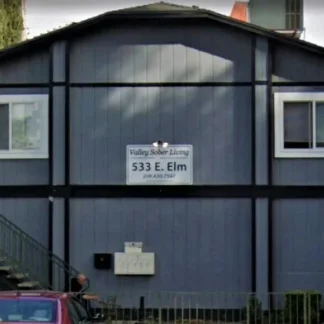Breaking the Chains Counseling
Breaking the Chains Counseling is a drug rehab facility in Lodi, California. The...
Valley Sober Living is a drug rehab facility in Lodi, California offering respite for clients with substance use disorder, alcohol use disorder, opioid addictions, and chemical dependencies. Valley Sober Living provides sober living housing, 12 Step programs, and aftercare for adults and young adults. All facilities are co-ed.
At Valley Sober Living, clients are screened and evaluated before admission. Housing arrangements can include two, three, and four-person rooms, depending on the rent. Clients attend evening meetings five nights per week in addition to other outside programs. Visitors are allowed for one-hour intervals. Amenities include laundry, Wi-Fi, a full kitchen, and community activities.
Valley Sober Living offers an alumni program for all clients, to provide additional support. Referrals may be available for additional specialized care in outside programs. Should relapse occur, clients may be eligible to return to Valley Sober Living.
Valley Sober Living offers self-pay options. The center does not accept private insurance, and financing is not available. Please check with your insurance provider for specific details concerning out-of-network benefits that may apply to complementary treatments.
Contact us for more information: (209) 430-7547

Connect with Valley Sober Living by calling their admissions team directly.
(209) 430-7547 Website Get DirectionsGroup therapy is any therapeutic work that happens in a group (not one-on-one). There are a number of different group therapy modalities, including support groups, experiential therapy, psycho-education, and more. Group therapy involves treatment as well as processing interaction between group members.
Life skills trainings involve all the skills a person must have in order to function successfully in the world. These include time management, career guidance, money management, and effective communication. Truly successful addiction recovery is based on the ability to not only live substance-free, but to thrive. Life skills teaches the practical necessities of functioning in society, which sets clients up for success in life, and therefore sobriety.
Nutrition therapy, aka medical nutrition therapy (MNT), is a way of treating physical, emotional, and medical conditions through diet. Specific dietary plans are designed by professional nutritionists or registered dietitians, and patients follow them in order to positively affect their physical and mental health.
Life skills trainings involve all the skills a person must have in order to function successfully in the world. These include time management, career guidance, money management, and effective communication. Truly successful addiction recovery is based on the ability to not only live substance-free, but to thrive. Life skills teaches the practical necessities of functioning in society, which sets clients up for success in life, and therefore sobriety.
Nutrition therapy, aka medical nutrition therapy (MNT), is a way of treating physical, emotional, and medical conditions through diet. Specific dietary plans are designed by professional nutritionists or registered dietitians, and patients follow them in order to positively affect their physical and mental health.
Nutrition therapy, aka medical nutrition therapy (MNT), is a way of treating physical, emotional, and medical conditions through diet. Specific dietary plans are designed by professional nutritionists or registered dietitians, and patients follow them in order to positively affect their physical and mental health.
Breaking the Chains Counseling is a drug rehab facility in Lodi, California. The...
Valley Community Counseling Services - VCCS is a drug rehab facility in Lodi, Ca...
AA - Alcoholics Anonymous - East Pine, in Lodi, California, is a drug rehab prog...
Aegis Treatment Centers – Healthy Connections is a drug and alcohol rehab locate...